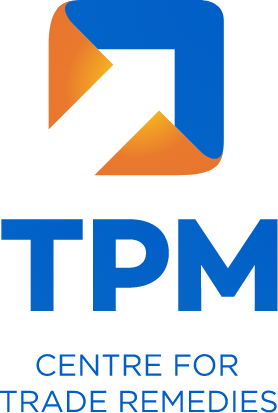Product Description: The product under consideration is PVC Paste, also known as Emulsion PVC Resin, excluding PVC Paste with a K value <60K, PVC Blending Resin, co-polymers of PVC Resin, and battery separator resins. PVC sold by Innovyn Europe Limited under the brand name Biovyn has also been excluded from the scope of the product under investigation.
PCN: The Authority defined two PCNs: PVC Paste with a medium K value (60-70K) and PVC Paste with a high K value (>70K).
HS Code: 39041010 is the dedicated code for the product under consideration. However, considering imports of the consideration under other codes, duties have also been recommended on 39041020, 39041090, 39042100, 39042200, 39043010, 39043090, 39049000, 39044000, 39049090.
Uses: Primarily used in the production of artificial leather. Other uses include manufacture of Rexene, coated fabrics, tarpaulins, conveyer beltings, toys, automotive sealants, adhesives and gloves.
Countries Involved: China PR, Korea RP, Malaysia, Norway, Taiwan and Thailand.
Applicant: Chemplast Sanmar Limited, supported by Finolex Industries Limited.
Date of Initiation: 30 September 2023
Period of Investigation: 1 April 2022 – 31 March 2023
Injury Period: 2019 – 2020, 2020 – 2021, 2021 – 2022 and the POI
Margins and Proposed Duties:
| Country | Exporter | Dumping Margin | Injury Margin | Duty quantum USD/MT |
| China PR | Formosa Industries (Ningo) Co Ltd | 60-70% | 50-60% | 546 |
| Shenyang Chemical Co Ltd | 20-30% | 0-10% | 115 | |
| All other producers | 80-90% | 50-60% | 600 | |
| Korea RP | Hanhwa Solutions Corporation | Negative | 20-30% | 0 |
| All other producers | 0-10% | 30-40% | 41 | |
| Malaysia | Kaneka Paste Polymers SDN BHD | 20-30% | 20-30% | 317 |
| All other producers | 30-40% | 30-40% | 375 | |
| Taiwan | Formosa Plastics Corporation | 10-20% | 30-40% | 118 |
| All other producers | 10-20% | 30-40% | 168 | |
| Thailand | TPC Paste Resin Co Ltd | 10-20% | 20-30% | 195 |
| All other producers | 20-30% | 20-30% | 252 | |
| Norway | Any producer | 30-40% | 20-30% | 328 |
Key findings:
- Selling price for Biovyn is significantly higher than that of general PVC paste resin. Biovyn produced by Innovyn Europe Ltd. is outside the scope of the product under consideration.
- The domestic industry had submitted that the demand for the product under consideration had declined, which encouraged these producers to export at dumped prices. The Authority examined the trend of domestic sales of all the participating producers from the subject countries. It was found that the domestic sales had declined.
- Formosa Industrial Co. Ltd, China PR. filed a market economy questionnaire response, but the Authority rejected it on the ground that the response does not conclusively establish that the decisions of the company regarding prices, costs and inputs, including cost of output, sales and investment, are made in response to market signals reflecting supply and demand and without significant State interference in this regard.
- Because of the nature of the production process involved, suspension of the production in itself is a significant cost to the industry and any PVC paste producer will prefer to continue to produce and sell at lower prices rather than suspend its production.
- Starting and stopping the complex chemical processes in a PVC resin plant can be expensive and time-consuming. This includes energy costs, potential material waste, and labour requirements. Frequent shutdowns and startups can increase wear and tear on machinery, potentially leading to higher maintenance costs and reduced equipment lifespan. Continuous operation helps maintain stable temperatures and pressures, which is ideal for the consistent production of high-quality PVC paste resin. Continuous operation also maximizes overall production output, which can help lower unit costs.
- Volume of dumped imports increased due to the demand and supply gap in the country.
- The performance of the domestic industry was improving till 2021-22 but declined steeply thereafter. The domestic industry has suffered financial losses during the POI, as well as cash losses and negative return on capital employed. The domestic industry is even suffering from negative financial contribution.
- Demand supply gap does not bar the domestic industry from seeking redressal from dumped imports. Further, the domestic industry has already undertaken and plans further capacity expansion.

